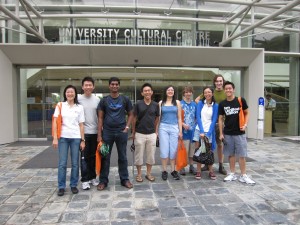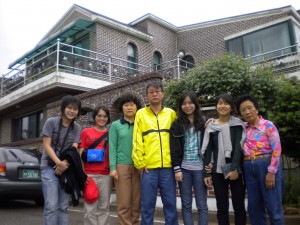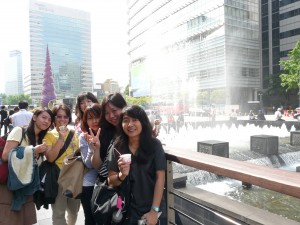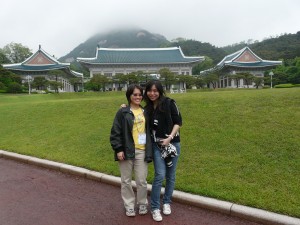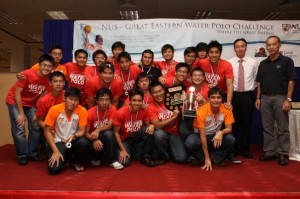By A/P TC Chang, Asst Dean (External Relations)
Befitting its 80th Anniversary, the FASS (Faculty of Arts and Social Sciences) celebrated 2009 with a host of activities enjoyed by alumni, students and faculty members alike. The activities ranged from intimate lunches to a theatre performance, poetry reading and a homecoming dinner with over 350 guests.
According to Professor Tan Tai Yong (Dean from 2004-2009), the Anniversary provided an excellent platform for alumni, students and staff to celebrate and reminisce the faculty’s achievements together. To commemorate the anniversary, a faculty logo and slogan competition was organised for students. The winning slogan captured the faculty well, as a place ‘Where FASSinating Things Happen’.
Kicking off the anniversary year was a Lo Hei Chinese New Year lunch attended by the faculty’s ex-Deans as well as over 50 alumni, young and old. This was followed by a combined Anniversary Bash in which FASS, together with the faculties of Dentistry and Science, celebrated their joint coming of age.
In conjunction with the NUS Festival of the Arts 2009, the faculty also organised a cosy dinner reception followed by a theatre performance. Alumni were invited to the play ‘Tree Duets’ produced and acted by FASS staff, Dr Paul Rae.
When Nobel Laureate Wole Soyinka came to town, the Faculty also took the opportunity to co-sponsor the event and invite over 50 alumni and friends to a poetry recital and dialogue. FASS guests enjoyed an evening of thought-provoking discussion with Mr. Soyinka at the NUS Cultural Centre.
The final event of the year was held at the Shaw Foundation Alumni House, and was attended by over 350 guests. The venue was specifically chosen as many alum had expressed a desire to return to their alma mater and to visit the new Alumni House. Aptly called ‘An Evening with Friends’, the dinner-event featured musical performances by alumni Joanna Dong (Class of 2006), faculty member Associate Professor Victor Savage (Class of 1972) and various undergraduate music and dance groups.
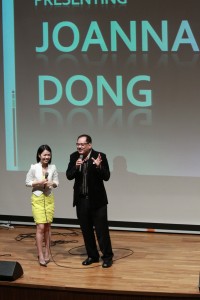
The anniversary dinner appropriately fell on World Kindness Day (13 November 2009), and many guests took the opportunity to make new friends while reacquainting with old ones. Some even took the opportunity to organise their very own reunions. The Geography Honours Class of 1989/90, for example, reunited for their 20th anniversary that evening. It was particularly touching for the alumni to meet their former lecturers, some of whom for the first time since graduation. Alumnus Chan Miang Boon expressed her thoughts about the combined anniversary: “Twenty years on, we still meet to share and learn the Art of ageing gracefully and the Science of staying young. Congratulations to FASS on its 80th Anniversary and thanks for the memories!”
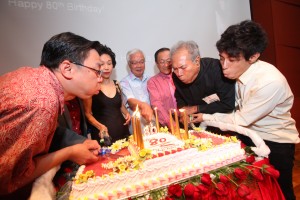
2009 was a memorable year for the faculty. Its diverse range of events and activities managed to capture what many fondly remember of FASS – a place filled with meaningful activities and warm friendships. Here’s looking forward to an equally successful 90th anniversary!
